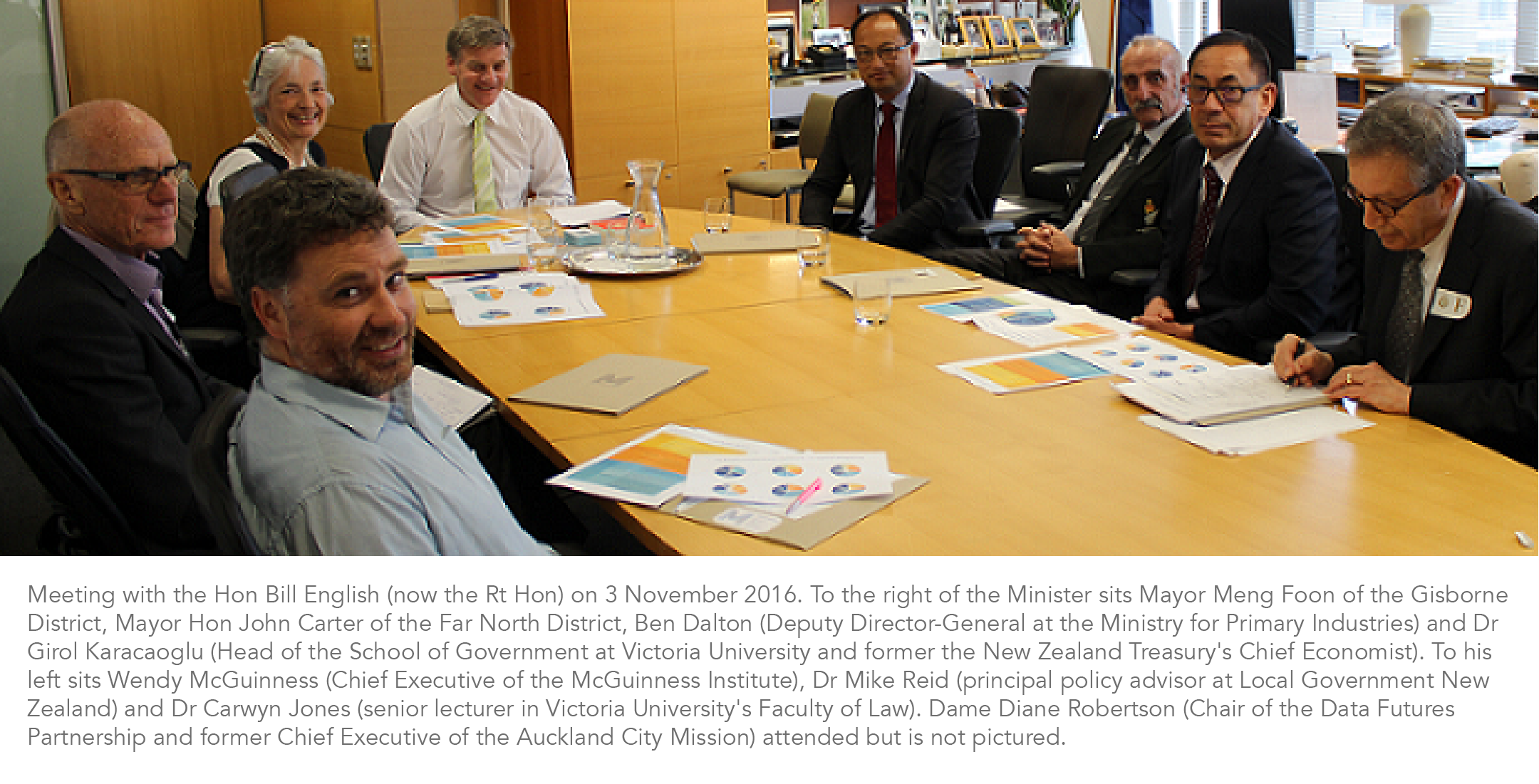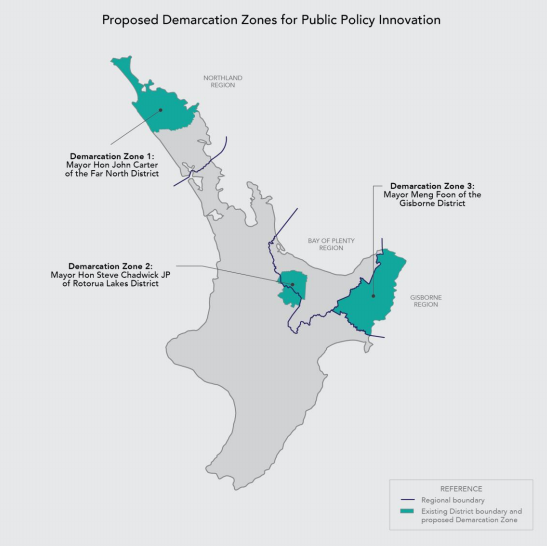This proposal is a response to the urgent need to tackle poverty in New Zealand. See the full proposal here. The proposal calls for the establishment of demarcation zones, which will isolate and separate areas for the implementation of new rules that are fit for the specific community they serve – decentralising economic and social governance. This instrument of public policy reform aims to tackle poverty by jointly strengthening social infrastructure and building economic wealth. This approach also allows central government to focus its energies on large cities, which require significant support.
We consider the mayors Hon John Carter, Hon Steve Chadwick JP and Meng Foon, of the Far North, Rotorua and Gisborne districts respectively, to be well placed to lead the establishment of three demarcation zones. Each area would develop its own way forward, but the demarcation approach to localised reform would remain the same.
The demarcation zones would have the necessary scale to enable better continuity of services; identifying gaps and removing repetitions that are unique to each community. We are imagining the establishment of a Demarcation Zone Governance Board for each zone and that each board would report to the Prime Minister. The focus and strategy should be determined by each Board, perhaps targeting a specific location, age group or issue. For example, a Far North Demarcation Zone Governance Board might choose to focus on a specific town within the Zone, a Rotorua Demarcation Zone Governance Board may choose to focus on the first 1000 days of children’s lives and a Gisborne and District Demarcation Zone Governance Board may choose to focus on drug and alcohol rehabilitation.
This proposal is urgent because we do not see any other way to fast-track innovative solutions designed to meet the unique needs of each community. Imagine New Zealand in ten years’ time, when these communities have achieved economic and social success and have showcased to the rest of New Zealand what works.
Background to the proposal
The proposal above is the result of a meeting on 3 November 2016 with the then Deputy Prime Minister, Hon Bill English and the mayors from the 2016 one-day workshops. The purpose of the meeting was to further build and share ideas on how to tackle poverty within regional communities and to share with the Minister the Institute’s new theory for tackling poverty: the Sustaining and Empowering Factors Framework. Far North District Mayor Hon John Carter and Gisborne Mayor Meng Foon proposed their solutions to tackle poverty in their regions, while I shared insights from Mayor Steve Chadwick who could not attend due to official duties. At the close of that meeting, the Minister requested that any proposal be concrete and pragmatic, as it would need to be fully assessed by all the Ministers involved.

About TacklingPovertyNZ 2016 tour
In December 2015, the McGuinness Institute undertook a three-day workshop in collaboration with the New Zealand Treasury. Its purpose was to explore ways to reduce poverty in New Zealand. This workshop has led to a number of outputs, one of which was a tour of one-day workshops around New Zealand throughout 2016. The purpose of the tour was to build and share ideas on how to tackle poverty, come up with local solutions and connect like-minded people within communities. The six one-day workshops were held in Queenstown, Manawatu, Rotorua, Gisborne, Kaitaia and Kaikohe.
A discussion paper for each area visited has been published on our website. These papers are specific to each community and together form a series showcasing insights from individuals who attended a one-day workshop in their local community.
The draft Working Paper 2017/01 – TacklingPovertyNZ 2016 Tour: Methodology, results and observations has been released for comment and can be found on our website. The final working paper will be published in early February 2017. This paper brings all the outputs together from the six workshops and aims to illustrate the differences between communities. In 2017 we would like to build on these findings. There was a lot to learn and digest, and we are still working through what this means in terms of public policy. Any feedback on this paper is most welcome.


